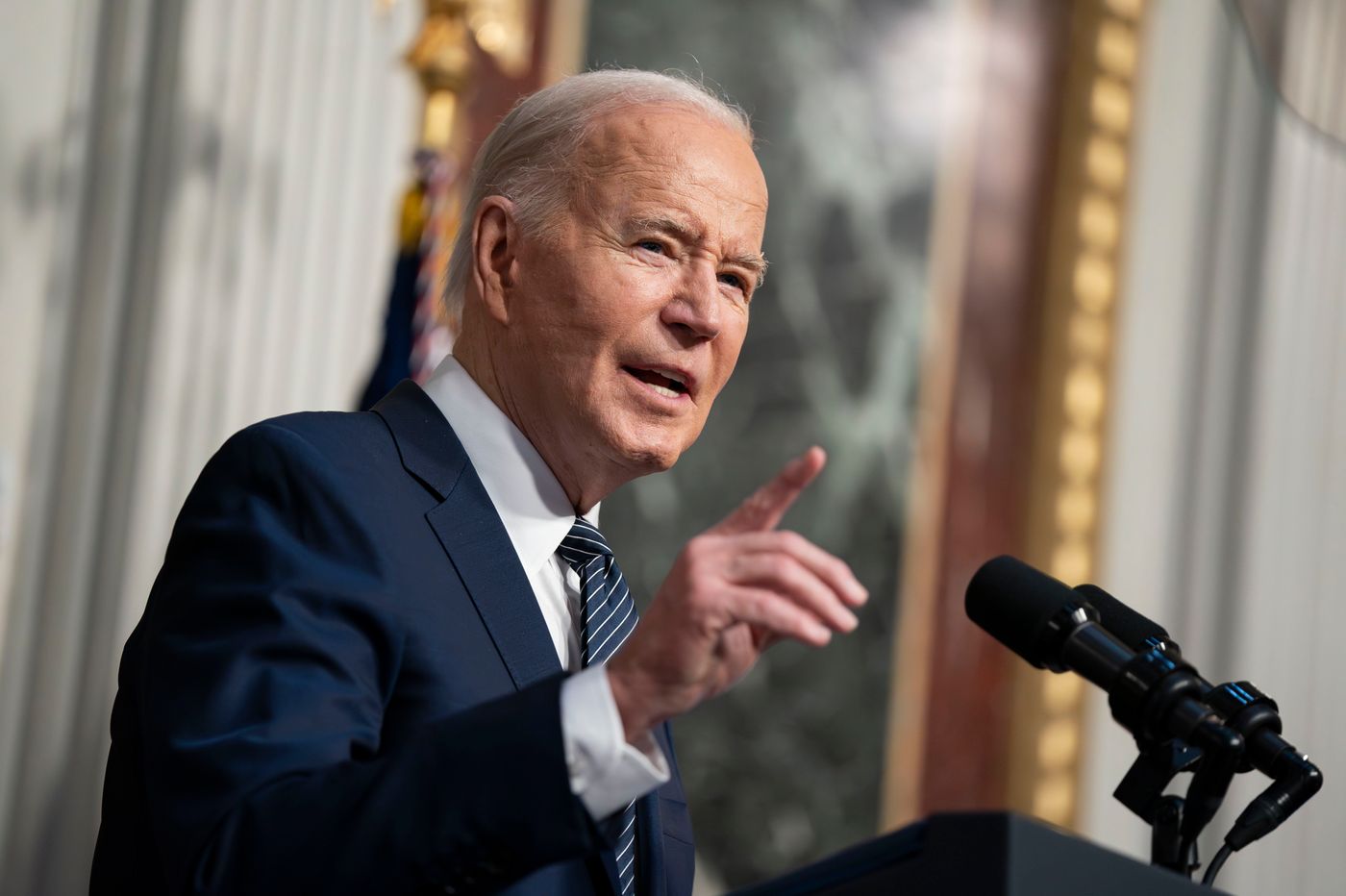Biden Is Spending $1 Trillion to Fight Climate Change. Voters Don’t Care.
President’s campaign is promoting the effort, hoping to attract young people
By Amrith Ramkumar and Andrew Restuccia
April 9, 2024 5:00 am ET
President Biden has done more to address climate change than any of his predecessors. So far, voters don’t seem to care.
The Biden campaign and a collection of progressive groups are trying to change that. They believe the president’s record on climate change can boost his popularity with young voters.
The strategy is risky because climate has never been a priority with voters. And it is unclear whether climate policies could reverse the deep skepticism many young people feel toward Biden. Recent Wall Street Journal polls have found that Biden’s support among young people is shrinking compared with 2020 amid concerns about the president’s age and his support for Israel’s war against Hamas.
Their first big challenge is to tell voters what Biden has accomplished. Paris Thompson, 19, of Philadelphia, said Biden hasn’t done enough on climate change: “Since he’s been president, I don’t think anything has changed.” A Democrat, Thompson said she is considering voting for independent presidential candidate Robert F. Kennedy Jr.
A Journal poll, which surveyed voters in seven swing states in March, found that just 3% of 18-to-34-year-old voters named climate change as their top issue, with most citing the economy, inflation or immigration. That is roughly in line with voters of all ages, 2% of whom cited climate change as their top issue. Other polls show that young people are more likely than older voters to say addressing climate change is important, even if many don’t name it as their top priority.
Biden administration officials say climate is an economic issue, and funding will create new jobs and industries in many communities. They are pushing to get cash out the door to show the economic impact.

Announced clean-economy projects
Political leaning of state
Strongly Democratic
Investment amount
5
Slightly Democratic
($ billions)
1
Closely divided
Slightly Republican
Strongly Republican
Note: Data as of Feb. 5. Categories are based on the partisan voting index, a measure of which party a state favored based on its voting history in the past two presidential elections relative to the national popular vote.
Biden’s campaign hopes to highlight the differences between Biden and Donald Trump, who dismisses worries about climate change. Trump has criticized subsidies for electric cars while promising to increase domestic production of oil and gas. U.S. fossil-fuel output has risen to records under Biden, but many voters in states with lots of oil-industry jobs feel Trump and other Republicans would be better for them.
Biden’s economic policies have been unpopular with a majority of voters surveyed in recent Journal polls. More than 60% of voters surveyed by the Yale University Program on Climate Change Communication said they have heard “a little” or “nothing at all” about the 2022 law known as the Inflation Reduction Act, which contained about $1 trillion in tax credits, grants and loans for clean energy.
“The community and the population doesn’t know about them, so it seems like nothing is being done,” said Rebekah Pike, a 38-year-old undecided voter in Bay City, Mich. Climate change is one of her top issues, but she hadn’t heard about the climate law or other policies before talking to the Journal.
Climate change is disrupting Michigan’s winters and threatening the state’s farmers, who grow everything from asparagus to cherries. A physical-education and health teacher and nurse, Pike said she would welcome more investments in Bay City, like an SK Siltron CSS factory making semiconductor wafers for electric vehicles that opened a few years ago.
The Energy Department recently said it would loan the facility $544 million to help fund an expansion and create 200 jobs in the city of about 30,000 where about one in four people live in poverty. Other recent loan commitments include $2.3 billion for a lithium producer in Nevada and $1.5 billion for a nuclear-power plant in Michigan.
After hearing that the climate law is spurring similar investments across the country, Pike said she was more likely to vote for Biden. She’s not alone. The Yale poll found that more than 70% of voters surveyed supported the Inflation Reduction Act after reading a brief description of it. But several young voters said in interviews they knew little about Biden’s climate efforts. Some faulted the president for not doing more on the issue.
Privately, senior officials expressed frustration that their efforts weren’t resonating with the public. But they held out hope that voters will become more engaged on the issue as the election nears. “We need to show our work along the way because these investments do take time,” a White House official said.
Private groups are bolstering the campaign’s message about climate change. Climate Power, a clean-energy communications organization, is spending $80 million this year to promote Biden’s climate actions. Much of the group’s activity targets swing states and younger voters with digital campaigns.
Former New York City Mayor Michael Bloomberg is spending $200 million to help cities and towns access their share of the federal clean-energy funding. A group called Invest in Our Future has about $240 million in funding commitments from organizations including Bill Gates’ Breakthrough Energy and the Rockefeller Foundation for similar initiatives. The League of Conservation Voters’ super PAC and affiliated groups plan to spend $120 million this election cycle, the largest investment in the group’s history.
Write to Amrith Ramkumar at amrith.ramkumar@wsj.com and Andrew Restuccia at andrew.restuccia@wsj.com


